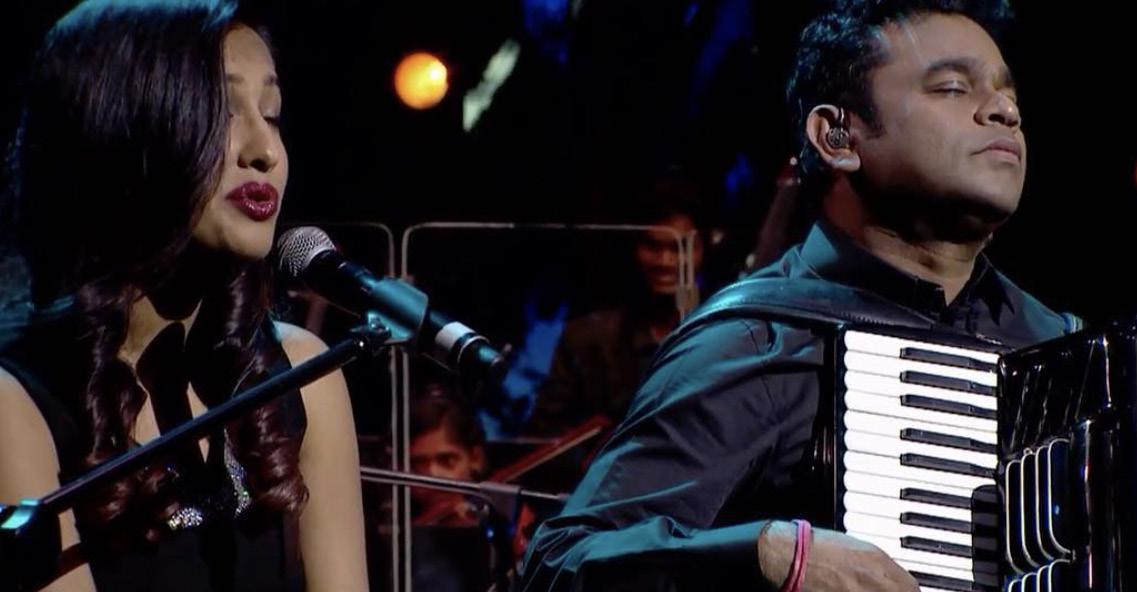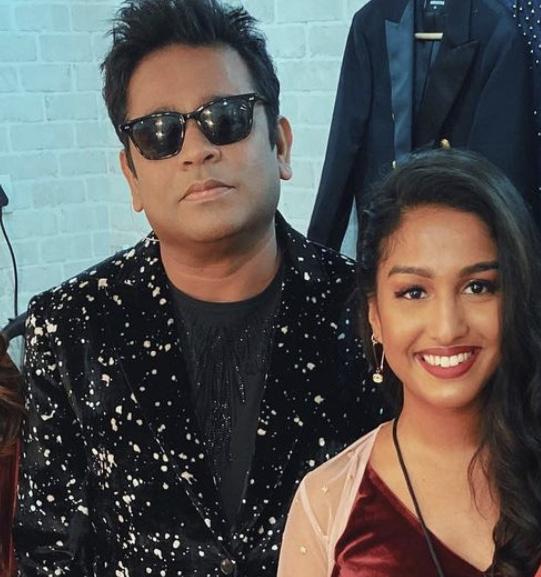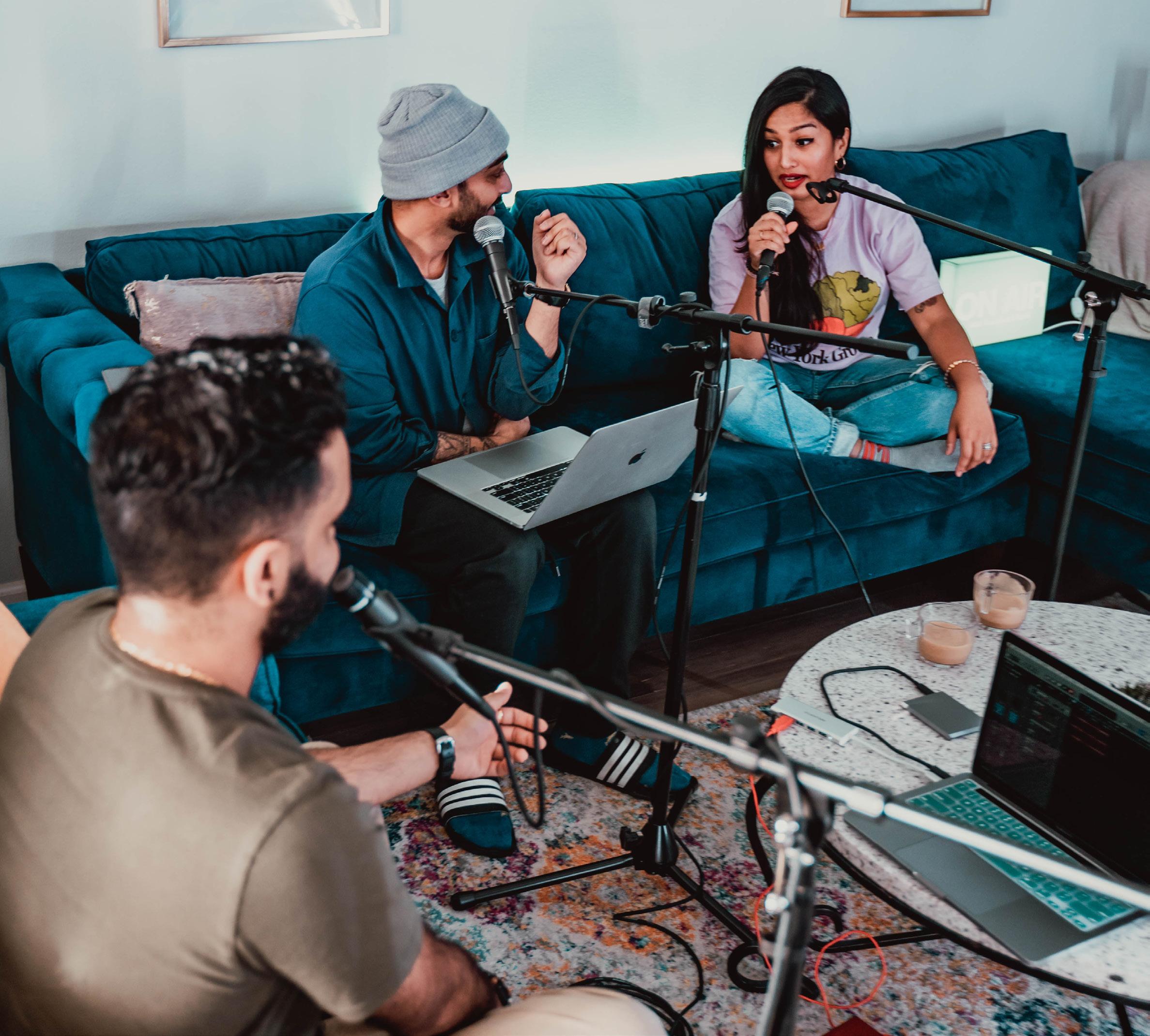
5 minute read
We Should Accept There Are Other
Rianjali has broken free of pigeon holes, and is beating a new path to musical success
NUPUR BHATNAGAR
As I finish my conversation with singer, songwriter and composer Rianjali, there is one thing that strikes me: how candid she is. Self-assured and forthcoming, she shares her story of success, struggle, and breaking barriers that women musicians encounter every day.
Rianjali’s musical canvas is wide. She went from working and performing with music composer A.R. Rahman, U2, and the Shawn Mendez band, among others, to being the songwriter of hits like “I Am More,” sung by Bishop Briggs; and “For You My Love.” She was also the singer-songwriter for “Raakh Baakhi” and “Freaking Life” from the Sreedevistarrer “MOM,” the music supervisor for the 2017 Netflix Original, “Daughters of Destiny,” and was Oscarnominated for the best original song from the movie “Lake of Fire.”
Here she is, in her own words, describing, among other things, how even Spotify unaccountably slots her songs only as Indian music.
CHILDHOOD
“I was born to immigrant parents in New York and was raised in Queens. My mom who was going to nursing school, and my father, who was working tirelessly in a restaurant, made the hard choice of sending me to my grandparents in Delhi. When I came back to my parents when I was five, I had trouble acclimating again. I did not know my family and I just wanted to go back to my grandparents. We had a hard time connecting with one another, and it is only around my teenage years that I began to settle down. It is now that I can understand the struggle our parents faced coming to the US.”
MUSIC, THE WIND BENEATH HER WINGS
“My dad is a popular Bengali singer from Bangladesh and so I grew up listening to and singing Bengali songs. He heard me one day, sat down with the harmonium, and was so impressed [by my singing that] he put me in Hindustani classical classes.
“I was a case manager in a domestic violence field with a master’s in clinical psychology on way to become a Ph.D. I was getting burned out pretty fast. Then, due to a growth in my vocal cords, I stopped singing. After surgery three years later, I realized I had to take advantage of my gift all these years and picked up my instrument again.
“Songwriting is a very personal part of me. I write from experience, or I imagine it if I have to. It gives me a sense of relief. Music has such a strong power to connect. I also mentor younger people and I make it a point to be accountable for what I say and do.”
UNDER A.R. RAHMAN’S MENTORSHIP
“I sang a track with my brother’s friend in 2014. Months later, he calls and tells me A.R. Rahman heard me and wanted me to come to India and work for him. Of course, I had to try. The initial idea was great for my family but the idea of moving to India did not go down well. It goes to show that while our community loves to hear of such opportunities, but the moment you drop everything for it,


Rianjali with music composer A.R. Rahman

it is not taken well. There is the typical mentality of getting a stable job in our households. But I did not want to regret later, and I just had to try so I left my job, relationship, friends and family to go to India.
“A.R. Rahman became my mentor. He taught me to trust my instincts and changed my perspective. I have learned to control my insecurities.
“I also know my parents are proud of me. I see my Dad sharing my performance videos with his friends every now and then.”
BEING MILD-MANNERED AND TIMID
“As South Asian people, we are expected to be doctors, lawyers, engineers, basically keep our head down – be mild-mannered and timid.
“My husband, a friend, and I talk about everything, especially our frustrations, a lot of which comes from being an Indian American on our podcast. We started over 1.5 year back, with no promotion, no advertising. Within six months we had over 20,000 people from all over the world listening to us. What started as a fun activity is now a platform to vent a lot of our emotions.”
SMASHING STEREOTYPES
“I have a problem with people always wanting me to be a playback singer. I want to be known for what I do as a composer. We should accept there are other things women can do.
“I would be told that if I don’t sing Tamil or Bollywood songs, what am I doing in the Indian Industry? A.R. Rahman trusted me with songwriting, composing and audio engineering but that world is really tiny for women musicians.
“As a South Asian woman, born and brought up in America, I’ve never felt I belong to any specific group. And it’s been problematic for me. In my many communications with record labels, it always boils down to ‘We love her music, but we don’t know who we will sell her to.’
“It’s truly upsetting because in a day and age of growth in the South Asian American creative industry, I cannot name a single singer, songwriter, composer that you hear on the radio.
“My music is not Indian; it is what people listen to here so why connect me with them? If I had a ‘white name’, and I looked and dressed a certain way would they still do that?”, she questions.
THE NEED FOR SOUTH ASIANS TO STEP UP FOR EACH OTHER
“There is a lot of struggle in the industry and it is harder for us South Asians. Our stories are always told last. Our own people need to step up and support us. I truly appreciate that Indian communities stick up to me and I feel we are making an impact. The private premiere of our first production, ‘Seeing God,’ sold out within the first night. We need that support and belief in our work.”
RIANJALI HAS DONNED MANY HATS, NOT ALL OF THEM INVOLVING MUSIC. SHE ALSO LOVES BEING BEHIND THE CAMERA AND, ALONG WITH HER HUSBAND, HOPES TO FINALLY HAVE A FULL-FLEDGED PRODUCTION HOUSE











